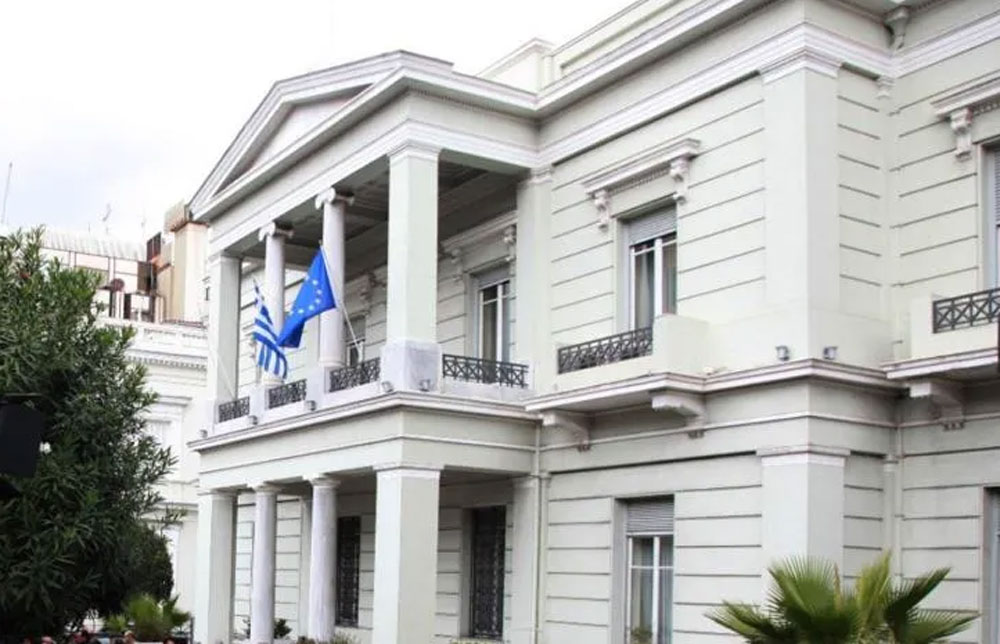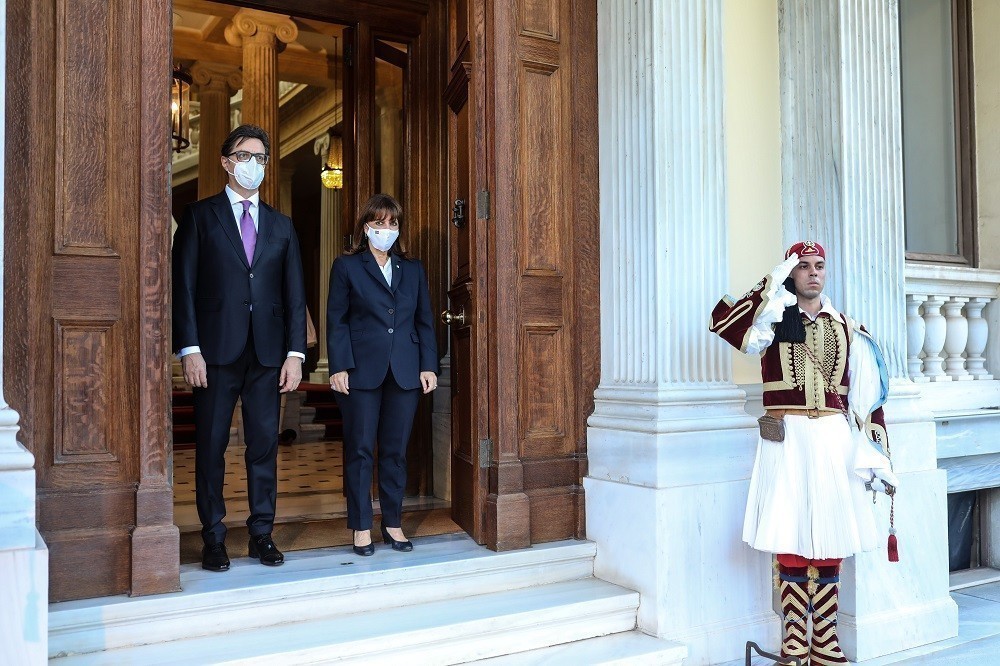
A new strategic vision for the two countries, Tsipras said before his visit to North Macedonia
Greek Prime Minister Alexis Tsipras termed his visit to North Macedonia on Tuesday “historic”, as the first official visit of a Greek prime minister to Skopje, in an interview to Sanja Ristovska for North Macedonia’s news agency MIA, and underlined the importance of building mutual trust between the peoples of the two countries.
“We must build mutual trust and North Macedonia should look to the future,” Tsipras told MIA. “Our region requires cooperation and stability: Greece needs a stable and secure northern neighbour, and North Macedonia needs a strong neighbour that supports its European perspectives.”
As Tsipras noted, in terms of the Prespes Agreement signed between the two countries resolving an outstanding decades-long name issue, “Greece will be your main ally and protector with regards to political stability, economic cooperation and development, military cooperation and security.”
He warned, however, that the Agreement “will be tested in critical areas as time goes by,” despite the progress achieved in a brief period of time. Ahead of that, “the dialogue and the trust we have established at all levels, beginning from mine with Zoran (North Macedonia’s PM Zoran Zaev) is precious,” he noted.
Priority in the different aspects of the Prespes Agreement to be implemented will be given to the signing of the first decisions of the Joint Inter-Disciplinary Committee of Experts over the textbooks and the establishment of a very important Committee on Trademarks, he said.
Elaborating further on the relations between Greece and North Macedonia, Tsipras said, “This visit is historic, based on the new strategic vision for our countries. Greece and North Macedonia must be partners and allies. The Prespes Agreement outcome is not only about the name issue and unlocking North Macedonia’s European and Euro-Atlantic prospects. The Agreement has laid the foundations for strong bilateral relations encompassing cooperation in international, European and regional terms.”
In this context, he said, the High-Level Cooperation Council, which will hold its first meeting during the visit, will include ten ministers from a number of areas – economy, energy, defense, foreign affairs, infrastructure, transport, agriculture development, digital policy, health – along with the first business forum with dozens of businessmen from both countries.
“We will also discuss the Action Plan that involves all categories of our cooperation, a defense cooperation agreement, the agreement on opening of a new border crossing Promahi-Majden, a cooperation memorandum regarding North Macedonia’s accession process, energy, infrastructure development, and civil aviation services,” he noted.
In addition, he said, the two neighbouring countries “will discuss regional developments, taking into consideration the big changes on the energy map. We will tackle the quadrilateral formations that Greece has established with North Macedonia, Albania and Bulgaria at the level of ministries of Foreign Affairs, and with Bulgaria, Romania and Serbia at the level of PMs. Talks will also touch upon the Berlin Process, the 16+1 Process with China, and the economic perspectives resulting from last year’s Thessaloniki international exhibition, where the United States took part as an honorary guest-country.”
Asked to comment on the role Greece can play in North Macedonia’s EU accession process, and about the latter’s economic development prospects, the Greek prime minister said, “The EU is going through a difficult period and many forces tend toward introversion or isolation as a response to the challenges of our times. Arguments benefitting enlargement – even for countries such as North Macedonia that have been consistent with their commitments – come across with much more resistance today when compared to the past.” He added that “the activities of Greek diplomacy in 2018 for the start of North Macedonia’s accession process this June (2019), but also the recent formation of the Group of North Macedonia’s Friends in the EU, highlight Greece’s importance in this regard.”
In terms of B2B relationships, he pointed out that “North Macedonia citizens are aware about the role that Greek companies already have in your country. I believe we can move even further, and the business forum will tackle this aspect.”
Asked whether he was afraid of the political fallout after signing the Prespes Agreement, Tsipras said, “If my government had been afraid of the political price, it would not have taken the country out of the crisis and the memoranda, nor found a solution to the insurance system, managed the refugee crisis, solved the name issue, promoted the required dialogue with Turkey despite the enormous difficulties or made radical changes in the field of human rights.”
He also pointed out that the Agreement “inspired many who have recognized it is viable to solve international differences by mutual respect, while securing one’s interests and without humiliating the other side.” The price paid, he said, was that “a significant portion of the Greek people was and still is seriously concerned about this issue. It is our responsibility – mine and Zoran’s – to show that our nations can only benefit from the path that is now open. It is also our duty to challenge the rising forces of nationalism, which strive towards bringing us back to the dark ages.”
Looking back at the negotiations and their process, Tsipras reflected that the two countries “went through many critical moments. Especially in the final days before closing the deal, when critical unresolved issues required delicate management. But this helped one side to understand the sensitivities of the other and find solutions.”
In resolving international differences, each of which has its unique sets of issues, “the meaning of mutual respect and the search for a mutually acceptable solution, which represents the foundation of the agreement, should be the basis for solution of international differences,” Tsipras said. In this respect, the Agreement’s dynamics in the region could “help the solution of other international issues,” he added.
Asked by MIA about the tie Zaev gave him during the signing of the Agreement in June 2018, Tsipras said he keeps it in the drawer of his desk to remember “a historic moment, the bold step towards friendship and cooperation between our nations.”
Source: ANA-MPA

